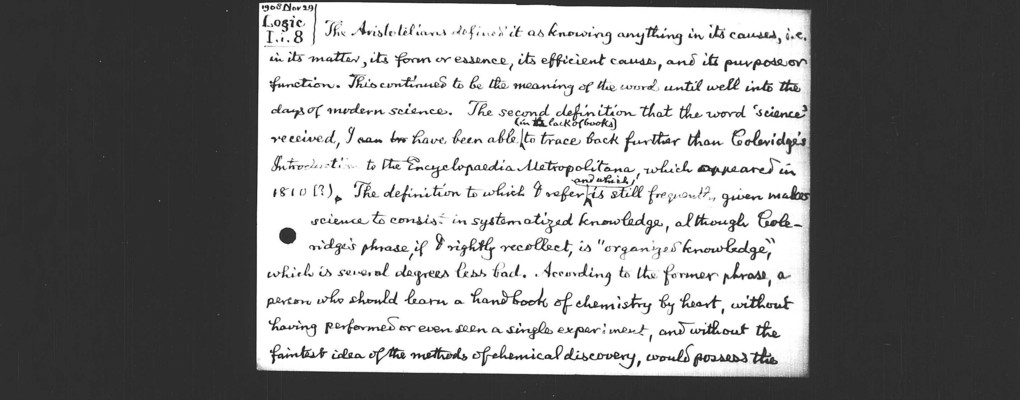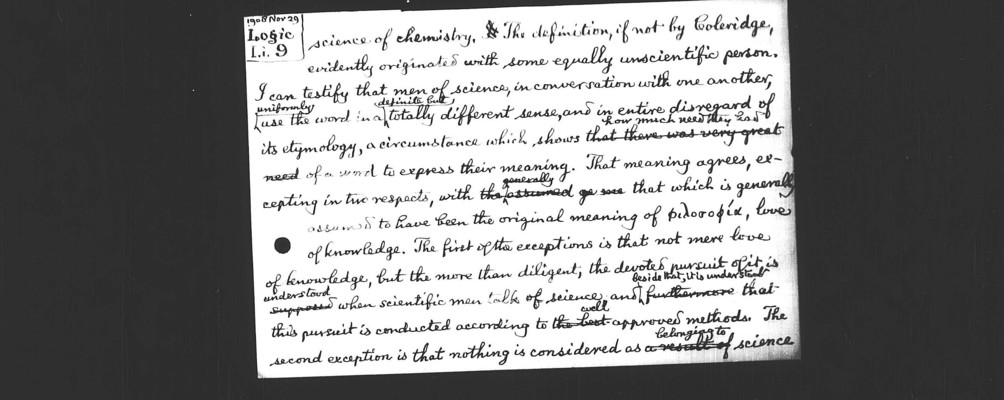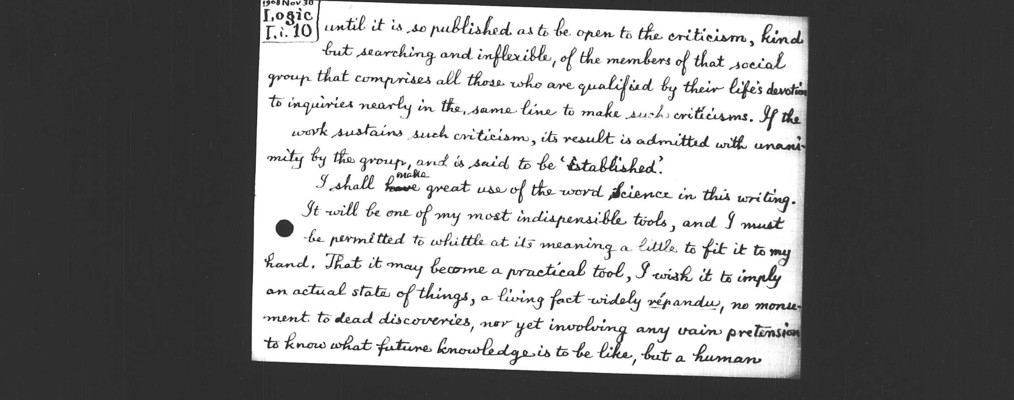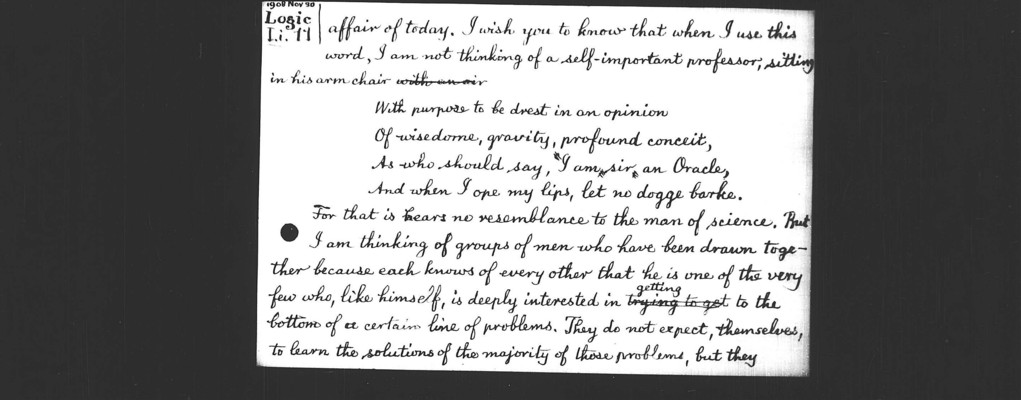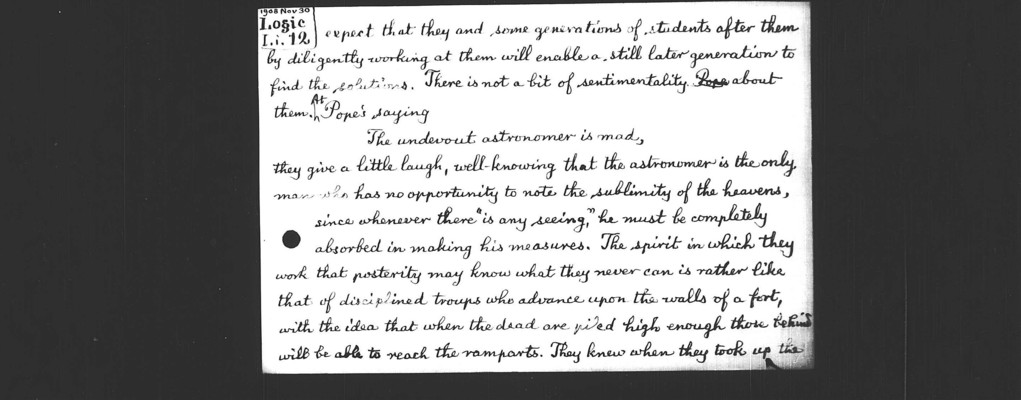Pages
105
1908 Nov 29 Logic I.i. 8
The Aristotelians defined it as knowing anything in its causes, i. e. in its matter, its form or essence, its efficient cause, and its purpose or function. This continued to be the meaning of the word until well into the days of modern science. The second definition that the word 'science' received, I have been able (in lack of books) to trace back further than Coleridge's Introduction to the Encyclopaedia Metropolitana, which appeared in 1810 (?). The definition to which I refer and which is still frequent, [given??] makes science to consist in systematized knowledge, although Coleridge's phrase, if I rightly recollect, is "organized knowledge", which is several degrees less bad. According to the former phrase, a person who should learn a handbook of chemistry by heart, without having performed or even seen a single experiment, and without the faintest idea of the methods of chemical discovery, would possess the
106
1908 Nov 29 Logic I.i. 9
science of chemistry. The definition, if not by Coleridge, evidently originated with some equally unscientific person. I can testify that men of science, in conversation with one another, uniformly use the word in a definite but totally different sense, and in entire disregard of its etymology, a circumstance which shows how much need they had of a word to express their meaning. That meaning agrees, excepting in two respects, with that which is generally assumed to have been the original meaning of φιλοσοφία, love of knowledge. The first of the exceptions is that not mere love of knowledge, but the more than diligent, the devoted pursuit of it, is understood when scientific men talk of science, and beside that, it is understood that this pursuit is conducted according to well-approved methods. The second exception is that nothing is considered as belonging to science
107
1908 Nov 30 Logic I.i. 10
until it is so published as to be open to the criticism, kind but searching and inflexible, of the members of that social group that comprises all those who are qualified by their life's devotion to inquiries nearly in the same line to make such criticisms. If the work sustains such criticism, its result is admitted with unanimity by the group, and is said to be 'established'.
I shall make great use of the word Science in this writing. It will be one of my most indispensible tools, and I must be permitted to whittle at its meaning a little to fit it to my hand. That it may become a practical tool, I wish it to imply an actual state of things, a living fact widely répandu, no monument to dead discoveries, nor yet involving any vain pretension to know what future knowledge is to be like, but a human
108
1908 Nov 30 Logic I.i. 11
affair of today. I wish you to know that when I use this word, I am not thinking of a self-important professor, sitting in his arm chair
With purpose to be drest in an opinion Of wisedome, gravity, profound conceit, As who should say, I am sir an Oracle, And when I ope my lips, let no dogge barke.
For that is bears no resemblance to the man of science. But I am thinking of groups of men who have been drawn together because each knows of every other that he is one of the very few who, like himself, is deeply interested in getting to the bottom of a certain line of problems. They do not expect, themselves, to learn the solutions of the majority of those problems, but they
109
1908 Nov 30 Logic I.i. 12
expect that they and some generations of students after them by diligently working at them will enable a still later generation to find the solutions. There is not a bit of sentimentality about them. As Pope's saying
The undevout astronomer is mad,
they give a little laugh, well-knowing that the astronomer is the only man who has no opportunity to note the sublimity of the heavens, since whenever there "is any seeing," he must be completely absorbed in making his measures. The spirit in which they work that posterity may know what they never can is rather like that of disciplined troups who advance upon the walls of a fort, with the idea that when the dead are piled high enough those behind will be able to reach the ramparts. They knew when they took up the
